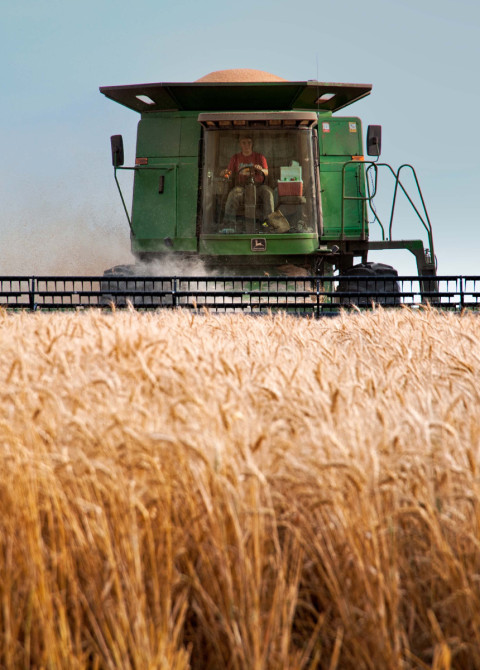What does the future of clean water look like on Earth, and what ethical questions does water management involve? How will our daily lives change when we make food and energy production more sustainable for the climate and environment? These are the types of questions examined in LUT's new social sciences degree progamme, which focuses on critical societal systems.
Critical societal systems refer to infrastructures that are vital for the functioning of society, including food systems, water management, the energy system, and transportation and mobility. Moreover, systems related to finance and digitalisation can be considered vital for the seamless functioning of modern society.
Critical systems in need of renewal
What all critical systems have in common is their vulnerability to disturbances and crises. The parts of the systems have found their current shape over time, making them inflexible.
In addition to inflexibility, all systems related to the functioning of society have been created in an unsustainable way in terms of the climate. As the climate changes, many of them enter crisis mode.
“As a social scientist, I think change is often connected to crises. When fuel runs out or food production is disturbed, practices need to change,” says Hanna-Mari Husu, associate professor and head of LUT's Degree Programme in Social Sciences.
The key problem of critical systems is that there are currently no alternatives to them. Nonetheless, climate change alone calls for alternatives.
“One example is the energy system and the related energy crisis. The crisis is an outcome of the war in Ukraine, but it is also a result of the European energy system's excessive dependence on fossil fuels, which is harmful to the environment,” Husu explains.

Companies increasingly spark changes in systems
Companies are increasingly inducing changes in systems. Climate change will increase the importance of expertise related to critical systems in both the public sector and business enterprises. Consequently, LUT is focusing on corporate collaboration in its social sciences education.
“Businesses are increasingly tackling different societal problems. That requires the ability to recognise societal megatrends, which is what social scientists do. Few are able to predict crises that society will encounter, but social scientists are able to provide businesses with a wide range of tools to forecast different scenarios,” says Antti Puupponen, university lecturer in social sciences at LUT.
According to Hanna-Mari Husu, knowledge of social sciences is important also because it can help identify both threats and opportunities in everyday business activities.
“Social scientists can help with ethical concerns and other policy outlines in corporate activity and in identifying innovation opportunities. The corporate world is also changing, and old modus operandi no longer apply,” Husu states.

Critical systems impact daily life
Social sciences examine the operation and practices of society and their impact on humans and human activity. Social scientists understand the importance of critical systems, their interrelations, and their impact on society and people's daily lives.
“Take transportation and mobility, for instance. They're major sources of emissions. Our society has been built around driving and private cars, which is especially obvious outside the Helsinki metropolitan area. On the other hand, driving enables independent mobility and is thus connected to social relationships and their maintenance,” Husu analyses.
If we cut back on driving because of emissions, it can indirectly impact our social lives.
Another example worth mentioning is food production. The scale of changes that it requires became evident in the COVID-19 crisis, which threatened to halt cross-border food transportation altogether.
Even if a society could produce enough food to meet its own needs when import is interrupted, the daily life and diet of people would still change considerably. That would also reflect on the operation of hundreds of food industry companies, from food producers to restaurants.
Transformation seen in Finland
The systems that affect people's daily lives and the transformation of these systems may seem distant. Many of us take a functioning society for granted: clean water runs from the tap and groceries are always available. However, Husu and Puupponen point out that forces of change are also at work in Finland.
“The challenges of the sustainability transition are very tangible for many actors in Finland, including farmers and companies that are dependent on fossil fuels,” Husu remarks.
Also, the energy crisis has affected the life of many a Finn even though the worst seems to be behind us. Nonetheless, rising electricity bills are a source of concern for a growing number of people.
“The world is changing no matter what we do. We now need to understand how to make that change sustainable,” Antti Puupponen states.

Critical societal systems in LUT's social and communication sciences
- The multidisciplinary stydy module of critical societal systems focuses on energy, water, food and transportation systems and the impact climate change, finance and digitalisation has on them.
- Understanding societal systems is especially important for tackling challenges posed by climate change
- In addition to societal discussion, the programme emphasizes corporate collaboration and business perspectives to societal systems.
More information:









